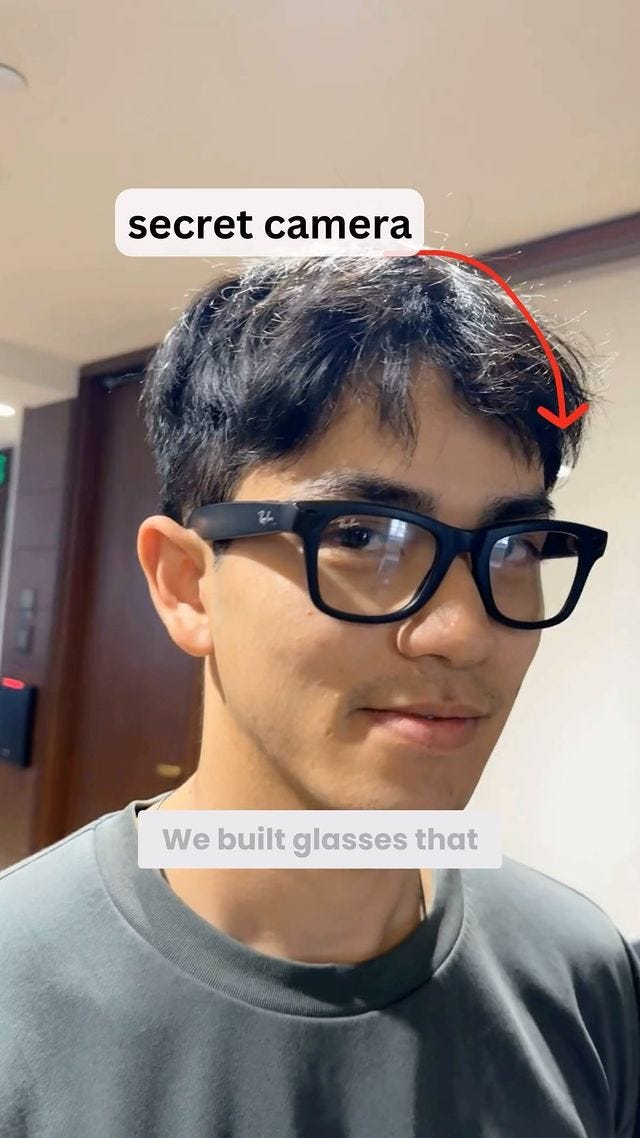Meta’s surveillance glasses, synthetic data, and why bigger isn’t better.
PLUS: Get my book, AI Untangled, for free.
Hi, it’s Charley and this is Untangled, a newsletter about our sociotechnical world, and how to change it. A few things before getting into it:
Last week, I wrote the sociotechnical system we all misunderstand: the economy. Check it out, and share it with a friend.
If you sign up for an annual paid subscription to Untangled in October, I’ll send you a free copy of my first book, AI Untangled.
My first course, “Sociotechnical Systems Change” offers a new approach for how we — as individuals and diverse collectives — can transform power dynamics in the systems we’re in, and chart new sociotechnical futures. That’s a tall order, but after working at the intersection of technology and systems change for 15 years (and at the risk of being a li’l bold!) I’ve come to believe that we’re doing it all wrong:
There is no such thing as a ‘tech problem.’ All ‘tech problems’ are entangled in social systems, and the systems don’t often behave like we expect them to.
There are no ‘tech solutions either,’ there are only sociotechnical interventions with consequences for different communities, societal values, and how power is (or isn’t) redistributed.
The future is not a neat theory-of-change away. Sociotechnical systems are complex — they don’t abide by cause-and-effect — and require thinking backward from the future.
I could go on, but the point is that by the end of the course, you will learn how to:
Map, analyze, and deconstruct power within sociotechnical systems.
Identify complex dynamics within sociotechnical systems.
Develop sociotechnical, system-aligned strategies — for yourself and your organization — that map backward from the future you want to create.
Develop a shared vision for collective action rooted in interdependence and trust.
In short, you'll come out of this course with a new vision and draft strategy for how to change the system you’re in, vetted by me and your fellow participants, and a workbook full of exercises so you can do it all again in the future. Learn more and download part 1 of the workbook here:
Okay, on to the show!
Meta’s Surveillance Glasses
Meta released new augmented reality glasses — called Orion — two weeks ago. While it’s unclear what exact problem the glasses are solving, it’s obvious why Meta is pursuing this strategy: they want to become their own platform. Ever since Apple implemented changes to its iOS that impacted Meta’s ad business, Meta has made massive investments — first in Oculus, and now with Orion — to make glasses the next platform upon which others build. They learned quickly that you’re either a platform company or you’re vulnerable to the whims of one.
Meta’s business strategy is just as predictable as what happened next: two Harvard students added facial recognition technology to the glasses, allowing users to identify anyone in view. The student project then connected the identified person — using a service called Pimeyes — to any personal information found about them on the web. Here is a video of what this looks like:
Keep reading with a 7-day free trial
Subscribe to Untangled with Charley Johnson to keep reading this post and get 7 days of free access to the full post archives.





